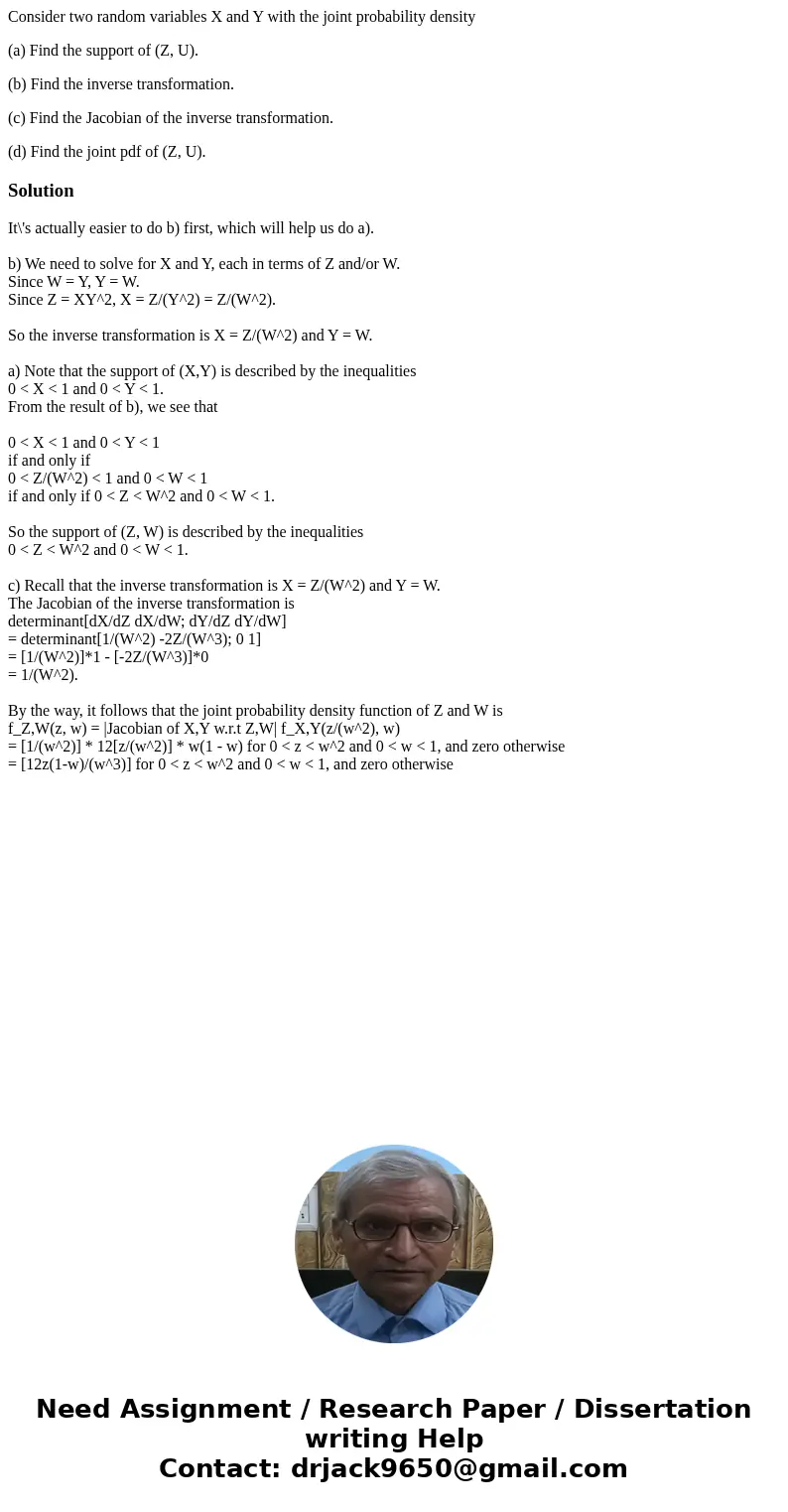Consider two random variables X and Y with the joint probabi
Consider two random variables X and Y with the joint probability density
(a) Find the support of (Z, U).
(b) Find the inverse transformation.
(c) Find the Jacobian of the inverse transformation.
(d) Find the joint pdf of (Z, U).
Solution
It\'s actually easier to do b) first, which will help us do a).
b) We need to solve for X and Y, each in terms of Z and/or W.
Since W = Y, Y = W.
Since Z = XY^2, X = Z/(Y^2) = Z/(W^2).
So the inverse transformation is X = Z/(W^2) and Y = W.
a) Note that the support of (X,Y) is described by the inequalities
0 < X < 1 and 0 < Y < 1.
From the result of b), we see that
0 < X < 1 and 0 < Y < 1
if and only if
0 < Z/(W^2) < 1 and 0 < W < 1
if and only if 0 < Z < W^2 and 0 < W < 1.
So the support of (Z, W) is described by the inequalities
0 < Z < W^2 and 0 < W < 1.
c) Recall that the inverse transformation is X = Z/(W^2) and Y = W.
The Jacobian of the inverse transformation is
determinant[dX/dZ dX/dW; dY/dZ dY/dW]
= determinant[1/(W^2) -2Z/(W^3); 0 1]
= [1/(W^2)]*1 - [-2Z/(W^3)]*0
= 1/(W^2).
By the way, it follows that the joint probability density function of Z and W is
f_Z,W(z, w) = |Jacobian of X,Y w.r.t Z,W| f_X,Y(z/(w^2), w)
= [1/(w^2)] * 12[z/(w^2)] * w(1 - w) for 0 < z < w^2 and 0 < w < 1, and zero otherwise
= [12z(1-w)/(w^3)] for 0 < z < w^2 and 0 < w < 1, and zero otherwise

 Homework Sourse
Homework Sourse